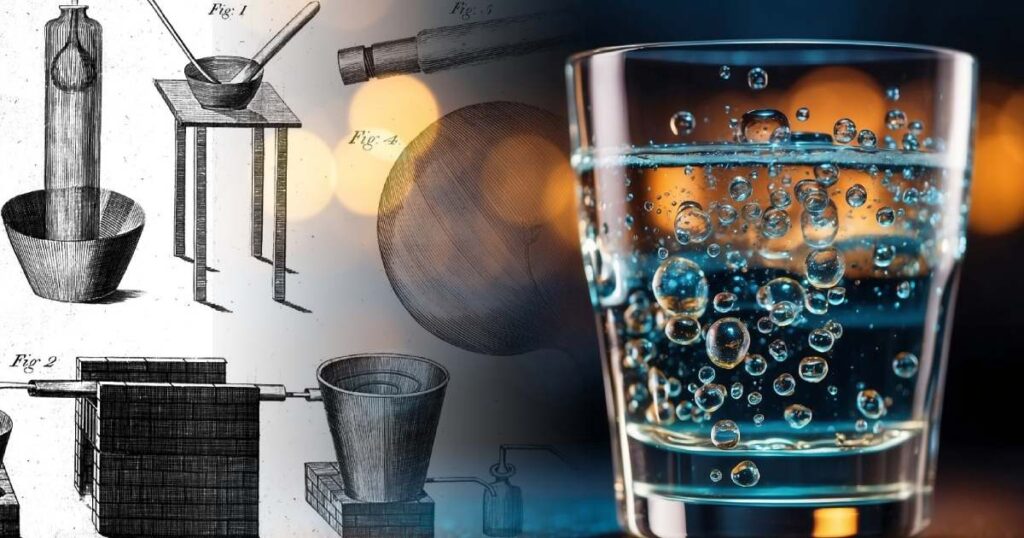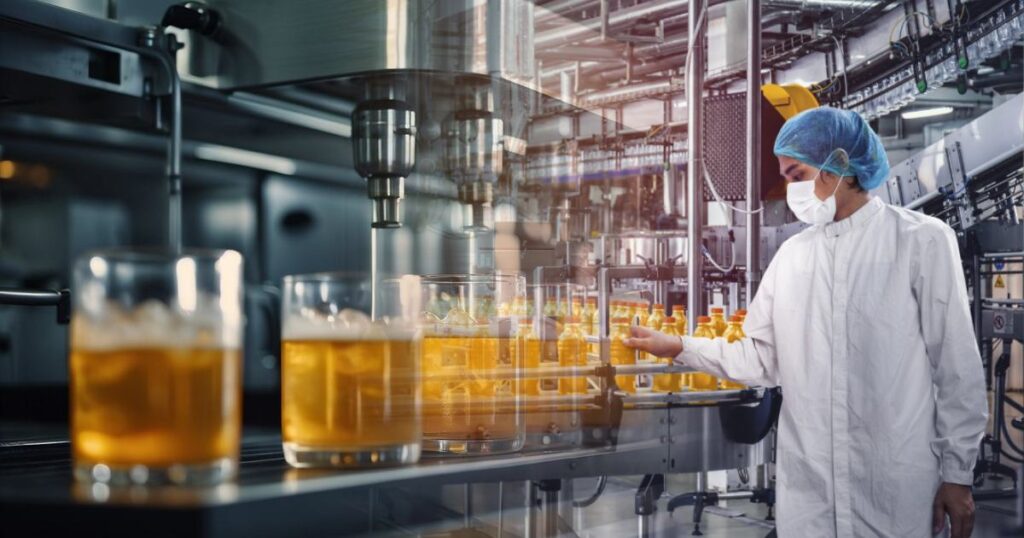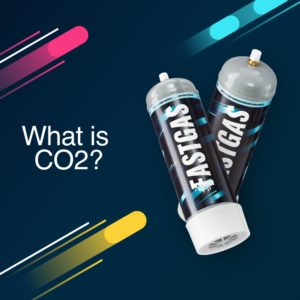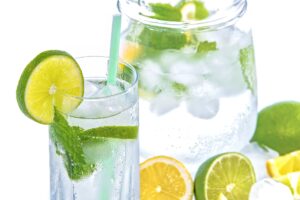Carbonated Drinks Creation: The Science Behind Fizzy Beverages
FastGas Blog
Carbonated drinks, often called soda or fizzy beverages, have been a staple of refreshment for centuries. The tickling sensation on your tongue is due to carbon dioxide, a colourless and odourless gas that creates the bubbles characteristic of these drinks. Understanding carbonated drink creation is vital to grasping the foundation of all carbonated beverages. This carbonation process, which involves dissolving carbon dioxide into water under pressure, gives these drinks their effervescence.
The journey of carbonated drinks began long before they became the commercial giants of today. When was soda invented? It traces back to the discovery of natural mineral waters with their carbonation, which inspired the development of artificial carbonation techniques in the 18th century. These processes have also evolved into sophisticated methods using advanced technology like FastGas cylinders, ensuring the consistent carbonation that consumers love in their carbonated drinks.
Key Takeaways
- Carbonated drinks owe their refreshing fizz to carbon dioxide in the carbonation process.
- The origins of carbonated beverages date back to the 18th century, with significant advancements over time.
- Modern production prioritises consistency in carbonation, enhanced by technologies such as FastGas CO2 cylinders.
History and Development of Carbonated Beverages
From the serendipitous discovery of bubbly water in the 17th century to today’s sophisticated carbonation systems, the journey of carbonated beverages is a fascinating story of innovation and popularisation.
Early Discoveries and Innovations
In the 18th century, the foundations of carbonated water were laid when scientist Joseph Priestley invented a method of impregnating water with fixed air, creating carbonated water. Simultaneously, Torbern Bergman developed his apparatus to carbonate water using chalk and sulfuric acid. These breakthroughs occurred alongside the burgeoning popularity of beer and ale, themselves early forms of naturally carbonated drinks.
Rise of the Soda Industry
The soda industry’s roots can be traced back to the late 18th century when Jacob Schweppe, harnessing Priestley’s and Bergman’s innovations, commercialised the production of bottled soda. The Schweppes Company, established in Geneva and later relocating to London, became a pivotal player in the production and distribution of soda water. By the 19th century, pharmacies began housing soda fountains, and the first forays into flavoured soft drinks started.
Modern Carbonation Techniques
Advancements in technology over the years have greatly enhanced the quality and convenience of carbonated drinks. Today, FastGas CO2 cylinders play a crucial role in modern carbonation systems, ensuring each sip of your favourite soft drink retains its effervescent zing. The invention of the crown bottle cap and the pull-ring tab revolutionised packaging and accessibility, making it easier to enjoy these fizzy beverages on the go. Since soda was invented, your experience of carbonated refreshments has been transformed by endless innovation.
Science and Production of Carbonated Drinks
In the realm of beverages, the production of carbonated drinks is a blend of scientific precision and culinary artistry. You’ll see how dissolved carbon dioxide plays a pivotal role and how modern techniques have refined the carbonation process to deliver the effervescent experience you know and love.
Chemistry of Carbonation
Carbonation is the critical chemical process that gives carbonated beverages their fizz. It occurs when carbon dioxide gas (CO₂) is dissolved under pressure into a liquid to form carbonic acid. The unique tingling sensation of drinks like soda and sparkling water comes from this acid that tantalises your taste buds.
Methods of Carbonating Beverages
Manufacturers use a carbonator to inject that signature sparkle into your favourite beverages. This device also introduces and dissolves CO₂ gas into the liquid under high pressure. FastGas CO2 cylinders are often employed to ensure consistent carbonation levels across production batches.
Quality Control and Preservation
Maintaining the quality of carbonated drinks involves strict controls. Pasteurisation and keeping beverages chilled help preserve taste and prevent spoilage. Consistent internal pressure must also be held to keep beverages effervescent until ready to enjoy.
Non-Alcoholic and Alcoholic Carbonated Beverages
Both non-alcoholic options like seltzer water and alcoholic variants such as beer and champagne undergo carbonation. The difference lies in the production process, where alcoholic drinks typically gain their carbonation naturally through fermentation, or, like some ciders, they can be added artificially post-fermentation.
Flavoring and Varieties
A wide array of flavoured syrups and natural fruit essences, such as lemon, orange, and cherry, create various tasteful experiences. Moreover, cola-flavoured beverages utilise specific blends of ingredients to achieve their classic profile, and artificial sweeteners often substitute sugar in diet soft drinks.
Health and Consumption
Moderation is vital when it comes to the consumption of carbonated beverages. While the occasional soda can be refreshing, concerns have been raised about the potential health risks, with some studies linking excessive soda consumption to an increased risk of stroke. However, diet coke and sugar-free options may offer a guilt-free effervescence for those watching their calorie intake.
Frequently Asked Questions
In this section, you’ll find concise answers to some commonly asked questions about carbonated beverages, from their flavour profiles to historical backgrounds and tips for creating them at home.
How do different flavours affect the creation of carbonated beverages?
Flavour plays a crucial role in carbonated drinks, as it complements the zesty sensation of the bubbles. Adding flavour extracts or infusions can alter the end product to suit diverse palates and preferences.
What are the impacts of consuming carbonated drinks on human health?
Regularly consuming carbonated drinks, especially those with added sugars, can influence your health. It’s important to monitor intake to ensure it aligns with your dietary needs and lifestyle choices.
What were the origins of the first carbonated beverage?
The first carbonated beverage has roots traced back to the late 18th century. It embodied a combination of what is carbonated water with other ingredients and marked the inception of an industry that would grow exponentially over time.
Which chemicals commonly found in soft drinks could be potentially harmful?
Certain chemicals like artificial colourings and preservatives in some soft drinks have raised health concerns. Paying attention to the ingredients in your beverages can help you make informed choices.
How can individuals carbonate drinks effectively at home?
With advancements such as FastGas CO2 cylinders, you can carbonate your beverages at home, ensuring consistent and satisfying bubbles in every sip.
What is the history and timeline of the invention of carbonated drinks?
When was soda invented? It was back in the 1700s that the concept of carbonated drinks was introduced, evolving to become the array of soft drinks enjoyed globally today. The timeline of invention reflects a journey of innovation and popularity.




